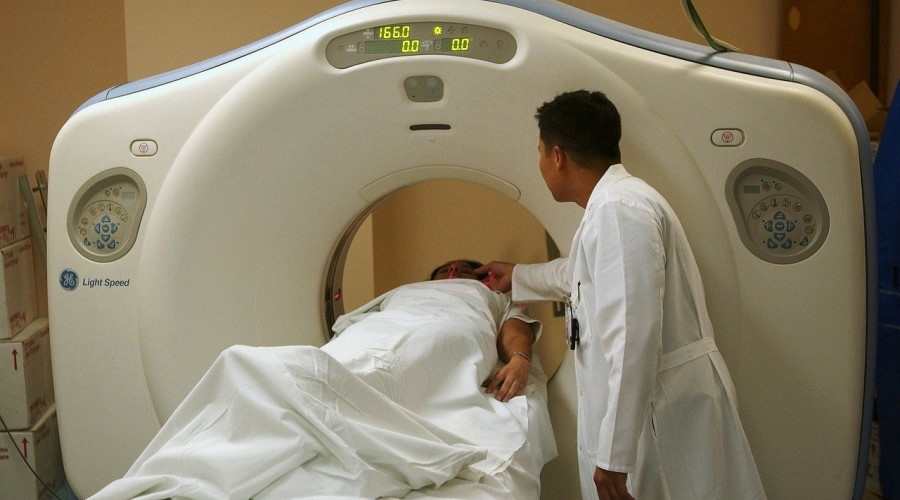AI 'could help diagnose lung cancer a year earlier'

An artificial intelligence algorithm was able to detect signs of lung cancer on CT scans a year earlier than with traditional methods, according to a new study.
CT (computed tomography) scans are already used to spot signs of lung tumours, followed by a biopsy or surgery to confirm whether the tumour is malignant, according to Benoît Audelan, a researcher at France's National Institute for Research in Digital Science and Technology.
Each scan involves a radiologist examining around 300 images and trying to spot tell-tale signs of cancer, which is a labour-intensive process that is hard to scale to national screening programmes.
Audelan and colleagues from the Université Côte d'Azur, the University Hospital of Nice and digital imaging software specialist Therapixel trained their AI using CT scans from 888 patients that had previously been examined by radiologists to identify suspicious growths.
They then put it through its paces on a new set of scans from 1,179 patients taken from a lung screening trial with three year follow-up, in which 177 cases of lung cancer were subsequently diagnosed.
The AI was able to correctly identify 172 of the 177 cancers, giving it 97% detection accuracy, with the cases it missed typically those near the centre of the chest which are harder to spot.
The team then analysed scans taken a year before the tumours were diagnosed in the same 1179 patients and it was able to identify 152 suspicious areas that were later diagnosed as cancer.
One problem to overcome however was a high rate of false positives, when the AI identified areas as suspicious that turned out later to be benign.
Audelan's frank assessment is that this would need to be "vastly improved" before the AI could be used routinely in the clinic, as false positives would be followed by unnecessary biopsies.
Nevertheless, he said - while presenting the new data at the European Respiratory Society (ERS) meeting this week - that the results show the potential of using AI to make lung cancer screening quicker and more efficient, and ultimately help diagnose more patients at an early stage.
"Screening for lung cancer would mean many more CT scans being taken and we do not have enough radiologists to review them all," he said.
"That's why we need to develop computer programs that can help. The objective of our research is not to replace radiologists but to assist them by giving them a tool that can spot the earliest signs of lung cancer," he added.
Lung cancer is the most common cause of cancer death with around 1.8 million lives lost around the world each year. Lung cancer is often diagnosed at a late stage when treatment is less likely to succeed.
Image by David Mark from Pixabay












